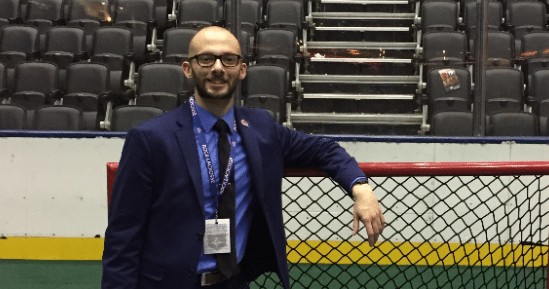Anthony Manserra is an Account Executive, Ticket Sales at Toronto Rock Lacrosse Club. I got to know Anthony quite well when I volunteered for the Toronto Rock. But, I hadn’t gone into depth about his role with the Toronto Rock Lacrosse Club or his overall career journey. So, getting the chance to do that on behalf of SPMA was great. Below, you will find my conversation with Anthony. Enjoy.
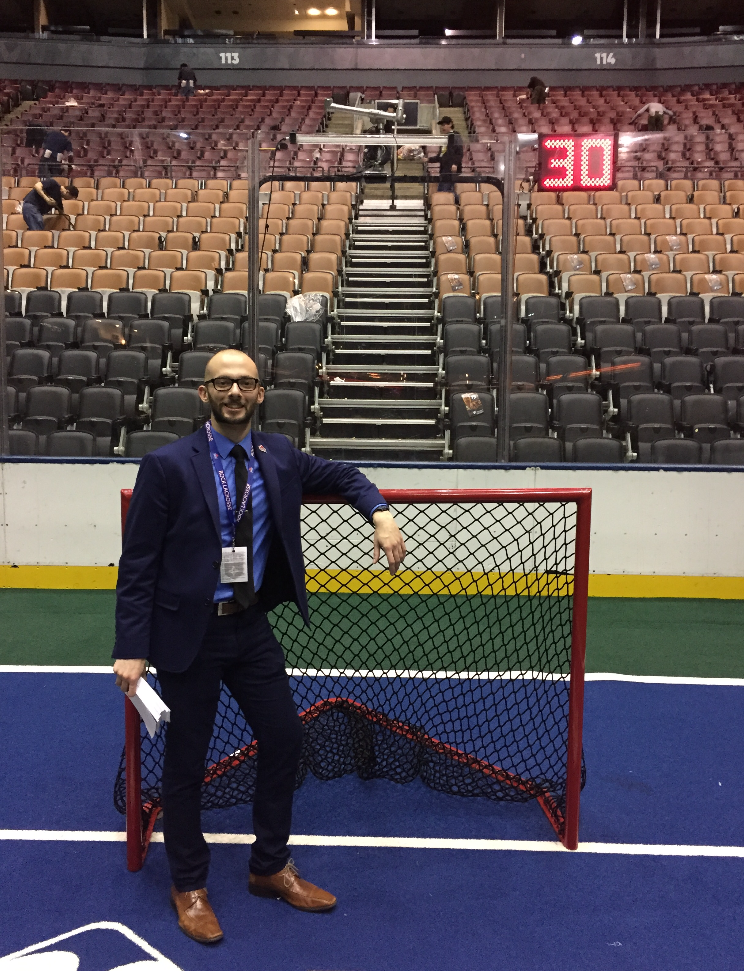
Tell us about your role as an Account Executive with the Toronto Rock Lacrosse Club?
I’m an Account Executive of Ticket Sales for the Toronto Rock Lacrosse Club. The main goal is to seek out new business for season tickets and group sales.
Right now, in the offseason, it’s mainly preparing for next season, in terms of bringing on new members. Now it’s about out-bound call base, following up on leads, and the various avenues that we get them.
In a typical day, I show up at the office just before 9:00, fire through some emails to get that stuff out of the way. Then probably around 10:00 I’ll fire off some calls. Then midday I’ll follow up on what I did in the morning, in terms of sending out some emails. Mid-afternoon I’ll probably fire up some more calls, and by the end of the day I’ll be following up on what I did, and the emails I need to send and set up my day for tomorrow.
Right now, it’s lots of emails and phone calls. There’s not much else we can do in terms of sales. The only thing we have on sale right now is our season tickets, just because we’re not quite sure about what our schedule is going to be.
Right now we’re filling the pipeline for when the schedule does come out. The slow work is now but as soon as the schedule gets released and we’re a month away from the season, that’s when we put the pedal to the metal and follow through on that filled pipeline that we’re doing currently.
When did you decide that you wanted to work in Sport?
I grew up playing sports a lot. I played basketball pretty heavily. I also played football very competitively, even going to the provincial level. I knew I wanted to be in sport. I wasn’t sure what capacity, but I knew I had a passion for sport. I didn’t really know what I was getting into but sometimes you just have to take a leap of faith. That way the program was laid out was fantastic, with multiple internships. I just took a jump in to see where it took me.
You studied Sport Management. How did you find the program and how has it helped thus far in your career?
It was great, the way they prepared us. I’ve used multiple things that I’ve learned in school in terms of sales, management, risk management, and so forth.
School can only prepare you so much. It was a wake-up call being in the real world, especially in terms of sales. I never would have pictured myself in sales, even when I was at college. I never really thought I’d get into that.
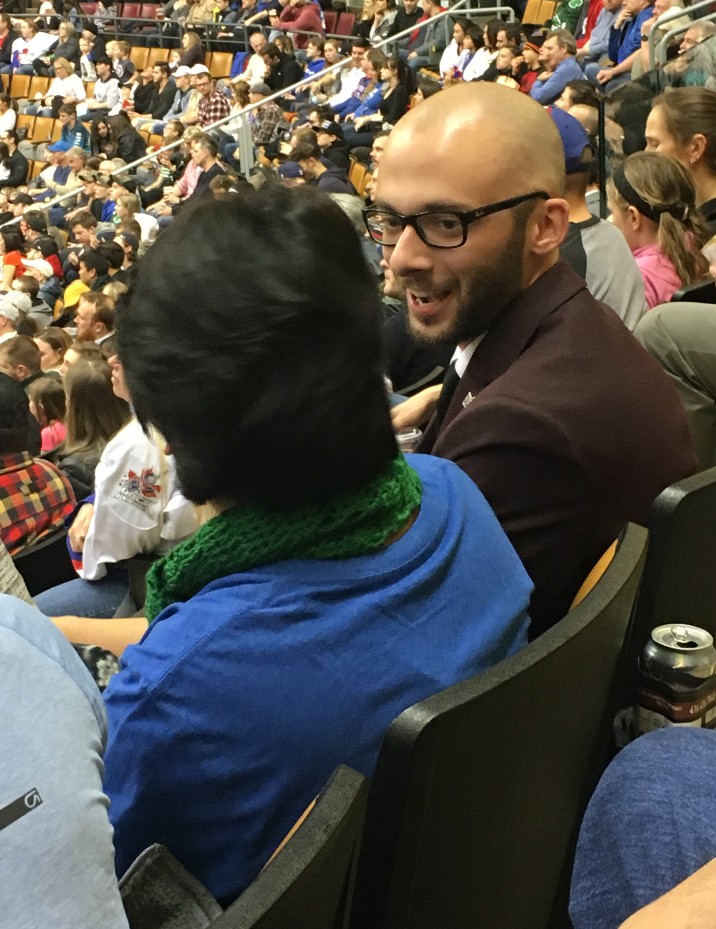
The number one entry point in pro sports is a sales position. Even if you’re not really comfortable in sales–I know I definitely wasn’t–it’s good to take a leap of faith. Even if you don’t like sales, it’s a great entry point into a position. Then that one position can take you to different avenues that you can pursue.
Tell us about your role at Tennis Canada. What did you learn from that experience that helped you in your current role with the Toronto Rock?
Tennis Canada was my first experience with professional sports. My big take-away was that you really need to know what your target market is. At Tennis Canada it was a very different market, compared to the Tronto Rock, in terms of the fans, and who is coming out to the games. In terms of sales, it’s really important to know who your target market is and who you’re talking to. Once you know that, you have a lot better success in attacking those demographics and getting them into the stadium.
How do you familiarize yourself with the demographic you are trying to target?
It’s kind of hard to answer in one go. You need to know how much people are spending on games. Is it a higher price? What type of tickets are people buying? Is it more affordable pricing? Or more of the higher-end pricing?
I had to look at what the team had done in the past, in terms of who to target. Not in every capacity, but the Toronto Rock fan base sometimes has a lower annual average income as compared to the fans coming out to Tennis Canada. Tennis is a bit more of a prestigious sport. People that come out to the tennis tournament have more of that disposable income, compared to the Toronto Rock, where they may not be as financially stable.
So you need to know how to talk to that person and make sure that you take care of them and get them the best possible ticket option that works best with their current situation.
Tell us about your experience in the public sector and working in construction.
Before I started at Tennis Canada, as a recent graduate, I worked for Richmond Hill for a few years in different capacities.
First I was a camp supervisor for a fairly large sports camp. I oversaw probably close to five or six hundred kids in a facility. I did that for about two years. Then I also worked in their sports hall of fame for a little while. The position paid decently, but it was only part-time and I needed a full-time job.
So, I took a break from sports and was working in construction, just trying to make a full-time paycheck. Then after a little bit of working in construction and landscaping, I decided it was time to get back into sports. I love sports. It’s what I studied, it something I wanted to pursue. I took a shot in the dark with Tennis Canada–the opportunity was fortunately given to me–and I never looked back
What did you learn from working with the City of Richmond Hill and with construction, that you have taken into this position?
You really need to know what you want to do in terms of a career. Construction paid very well, but the hours weren’t great. The job was very physically demanding, and it’s not what I went to school for. You need to do what you love. If you go to work every day hating your job, you’re never going to get something out of it. You’re never going to grow from that.
Sometimes you need to take a shot in the dark. I didn’t have any sales experience going into Tennis Canada. I didn’t know anything about Tennis. I knew that I loved talking to people; I loved talking to people about sport.
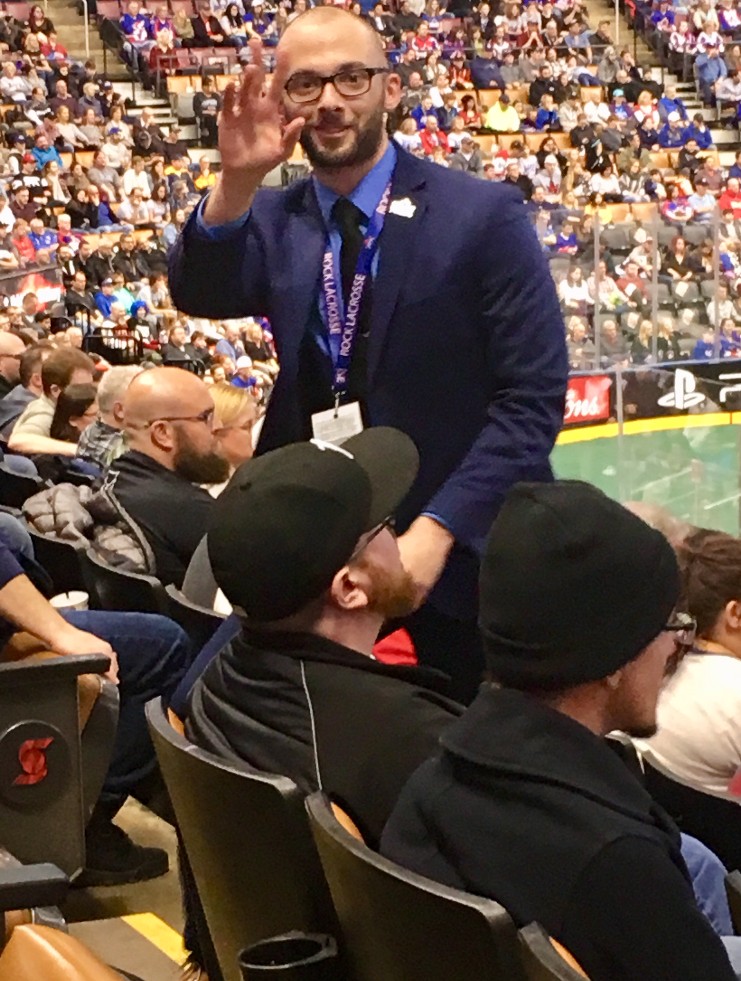
A great thing about my job is that it gives people the ability to come to a sporting event, forget about their lives for a few hours, forget about all the problems they’re having and just have a great time. Everyone is just cheering for a common goal. Sport has that unique ability: you can have bad things happening to you, your life going in a million different directions, but when you’re at the stadium for a couple of hours you’re not thinking about anything else. You’re there to enjoy the game. And that’s what I love. I love bringing people together for a common goal, and sports is the perfect avenue to do that. That’s why we all love it.
What are some of the biggest challenges you face working for a professional sport team in Toronto with so much competition?
The lack of awareness is the biggest hurdle. Many people don’t know about the Toronto Rock. The sports fan may know about us, but a first-time fan coming out to a game just doesn’t know what the Toronto Rock is.
It’s hard being in the Toronto market, especially playing in an arena like Scotiabank Arena because we’re often overshadowed by the Toronto Raptors or the Maple Leafs. It’s simply a lack of awareness. People don’t know about the Toronto Rock as much as they should. I found that’s the biggest challenge day-to-day.
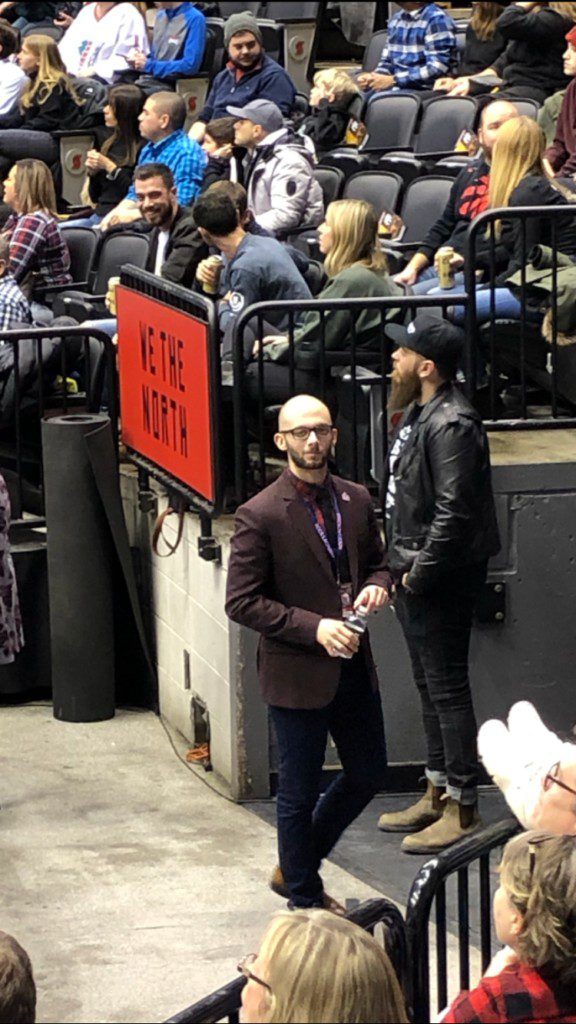
It’s a hurdle that we have to face and we do deal with it quite well. The next step in trying to get more awareness is just talking to people. Hitting the phones.
What’s your favourite part about working for the Toronto Rock?
It’s a long list. The organization is fantastic. It’s a very small knit group. The front office only consists of 10 or 15 people. It’s great working in a small organization like that. You’re not seen as a number, you’re seen as a person.
A great thing about working with Toronto Rock, outside of the fantastic core people in the front office, is that you get to experience a little bit of everything. Especially during the season, we’re wearing different hats. I’ll be in sales and then helping management handle the group experiences for a game, and then involved with business operations, asking what deals we’re going to offer for the next game to get people into the building.
What advice do you have for aspiring sport Professionals who may be struggling right now?
My number one piece of advice is don’t say no to an opportunity. You never know where it’s going to lead you. When I was working at Tennis Canada I saw the position open up at Toronto Rock. The director worked at Tennis Canada before me and knew people at Tennis Canada. It’s a very small knit world, the sports world. Everybody knows everybody.
Another solid piece of advice, which I still do, is sit down and talk to people who are higher than you. People want to talk about their experiences. It’s great to network because of how small the community is. If you put your foot in the door and chat with every little person that you can, it’s going to make a world of difference when you’re looking for a position and you have all of these people you can go to for a reference.
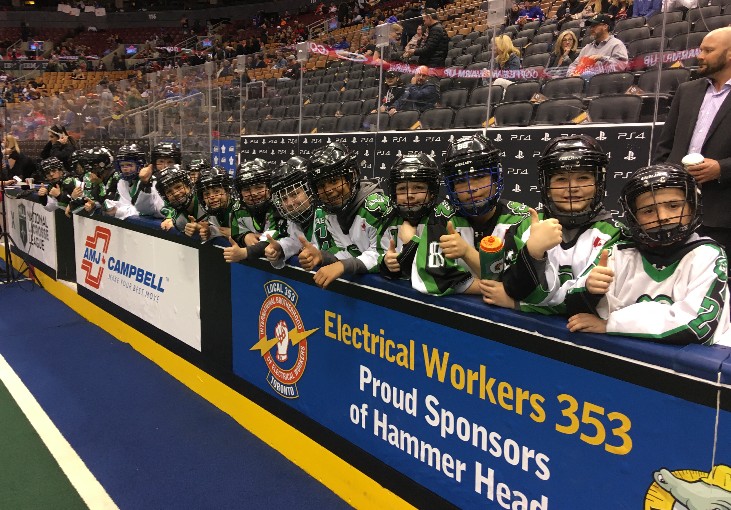
Don’t be afraid to shoot your shot. I had no idea what I was getting into with Tennis Canada. I knew I wanted to work in sport, and I knew I wanted to change my career path.
You need to put on your work boots, and you need to help out. I think that’s what sport is, at various levels. This is not just exclusively to Toronto Rock.
When you’re graduating from sport management and you’re looking for a job, you may be applying for this one job, but that includes the duties as assigned. You need to be part of the team, a team player. You need to help the overall goal even if it’s not directly related to your job. As time goes on you can move on to different organizations with the experiences that you get.
Anthony Manserra
Interview by David Minor
Posted September 14, 2019 in Industry Profiles

